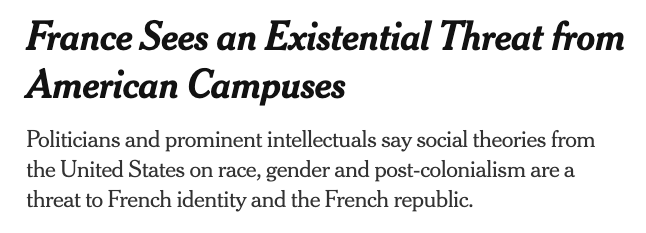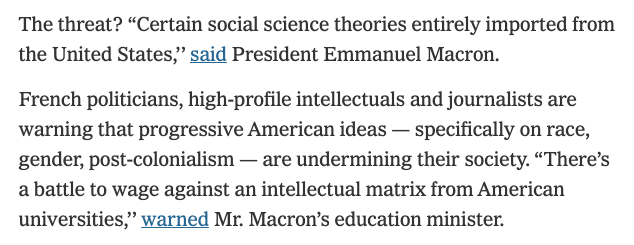
1) Some thoughts about faculty governance in higher ed. and being in the position to change things for the better. ...
2) Actually governing and running a college is complicated and a ton of work, much of it the kind of work that too many faculty look down on. I say this based on ...
3) my first year as a dept. chair, hiring, writing staffing requests, managing the curriculum, &c &c and having now served on committees for reevaluating the college core curriculum, for developing free expression policies, for developing first-year orientation and ...
4) dormitory / residential plans, for launching, staffing a new AI institute, for deciding on & planning our COVID strategy, for evaluating classroom spaces and even campus landscaping and design, &c. I live on campus, I eat in the dining halls. There's hardly ...
5) an area of this institution for which I haven't had to work through plans, logistics, values, &c in collaboration with other people, and amid much (usually reasonable) disagreement. Let me give a specific example of what I'm getting at with all this:
6) I've been on twitter periodically railing against what I think are unreasonable requests for academic job applicants--letters of rec up-front, a million boutique documents that eat up a ton of the applicant's time, &c--and yet I've had to chair or participate in searches...
7) where I was required by policy to go against my firm convictions in this regard. We're changing this unreasonable policy, and it's only bc of faculty (def. not just me) who are doing tons of service work speaking up on various committees and getting things changed. ...
8) It's a relatively small example that doesn't take much in the way of resources or readjustment to change--we simply decided we don't have to do a thing if we don't want. Obviously there are bigger obstacles for bigger changes. But the point is ...
9) if you're not in the room (or banging down the door--figuratively--to get into the room) then your 'shared governance' is gonna look a lot like admin decision-making with faculty 'consultation' when and where they want you, ie discussion into the void. ...
10) The way to not be in the position where a group of people who've never set foot in a classroom with students make an 'unbelievable' decision to destroy a department or push further toward a contingent labor staffing model is to be in all the rooms. Easier said than done ...
11) but my sense is that it's more comfortable for faculty to leave this (crucial) part out of the multi-pronged battled for the soul of the university. And, not for nothing, to overlook some unlikely allies in so doing. ...
12) But in addition to being directly involved in decision-making at various levels of governance--even if 'service' is unpalatable to you--such involvement is also important for substantive understanding how institutions work. /end
• • •
Missing some Tweet in this thread? You can try to
force a refresh









